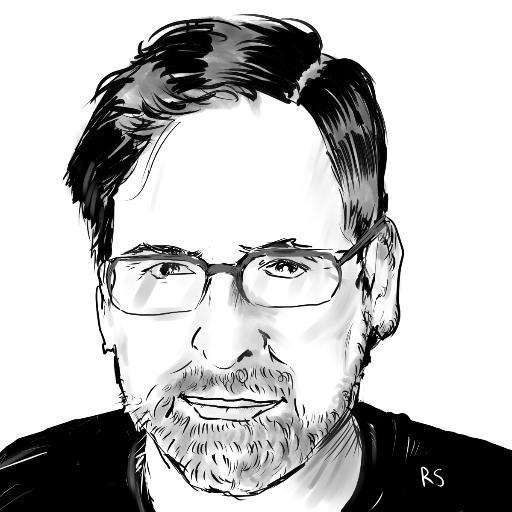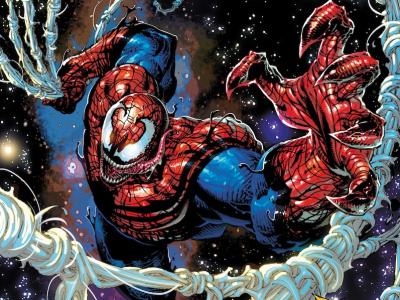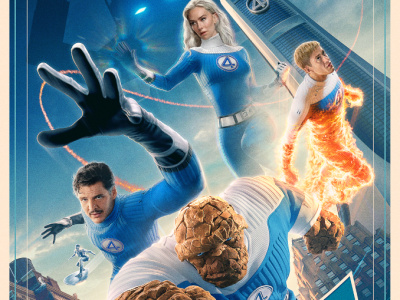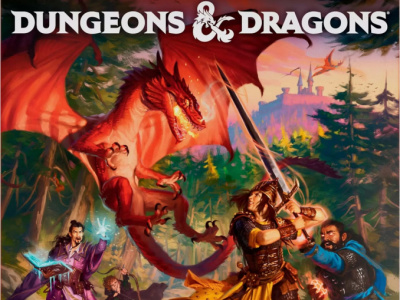It’s March: the skies are clearing, the trees are budding, and the pop culture convention season is about to ramp up in earnest. After a decade of chaotic growth and competition, the market seems to have sorted itself out nicely, with lots of shows serving lots of different fan niches and plenty of quality options at each level of scale. The big questions now are, can the big players live with an industry that has sorted itself out into clear lanes, and can shows regardless of size and audience deliver great experiences for the slice of the market they’ve targeted?
March Madness. The last three weeks of March feature three of top "Middleweight" contenders in the pop culture space all rolling out their 2019 editions: great regional shows with seasoned leadership teams and well-established formats. These three shows are great examples of cons that have realized their market potential and grown into enjoyable, if predictable, landmarks in the early-year calendar.
Emerald City Comic Con (ECCC) kicks things off March 14-17 in Seattle. Last year ReedPOP said it sold nearly 100,000 tickets for the weekend, or about 25,000 per day over the four days of the show – which is a lot of bodies to cram into the 237,000 square feet of the Washington State Convention Center. Relatively rare among shows this size, ECCC traditionally focuses more on creators and publishers than on big celebrity names. This year’s celebrity headliners are the Stranger Things kids, George Takei, Sonequa Martin-Green and Peter Capaldi, among others, but the real star of the show is the 500+ artists in artist alley. I’ll have a complete wrap-up of ECCC here in two weeks.
Just a few days later, the ReedPOP crew will set it all back up again in Chicago for C2E2 (March 22-24) at McCormick Place. This is more of a media show than ECCC, with Paul Rudd, Clark Gregg, Ming Na Wen, Matt Smith and Svengoolie among a diverse array of entertainment guests. ReedPOP reported 82,500 tickets sold last year, which seems like a lot, but the show still has plenty of room to grow. McCormick Place is a beast of a venue; at full capacity, C2E2 could become one of the largest shows in the country.
At the end of the month, Comic-Con International taps in with WonderCon in Anaheim, March 29-31. Long positioned as the "little brother" to the titanic San Diego Comic-Con in July, WonderCon has grown into a solid show in its own right. WonderCon’s guest list focuses exclusively on comic creators, although media guests do appear as part of panels and special programs. This year’s lineup is heavy with event cosponsor DC’s marquee talent: Jim Lee, Scott Snyder, Liam Sharp, Greg Capullo, Julie and Shawna Benson are some of the notable guests who will be setting up their tables on Disneyland’s doorstep. At around 60,000 unique attendees (note: CCI counts attendance differently than ReedPOP) over three days, WonderCon is a big but manageable show for fans who enjoy the SDCC brand vibe and experience without the huge costs and hassles that have become associated with the larger event.
These are just the three largest of nearly two dozen comic and fan-related events that I could find on the schedule for March, the opening month of a "con season" that now extends into early November.
Cons at a Crossroads. Nearly two decades after San Diego Comic-Con began its ascent from being the central hub of a niche fandom to the physical incarnation of 21st century pop culture, the comic-celebrity-entertainment-manga-cosplay-small press landscape finally seems to have sorted itself out into lanes and channels. There’s still competition at each level of the business and for each niche audience, but for the most part, cons have a better sense of their own identities, missions and limitations.
This specialization has been a boon for fans who can decode the marketing signals sent by show organizers to find their place in this ecosystem. In Seattle, mainstream comic, art, genre fiction fans and collectors fill the convention center for ECCC. A month later, the manga/anime extravaganza SakuraCon serves a different slice of the market. Last year, Ace Comic Con recognized how ECCC de-emphasized marquee entertainment names in its programming (in part because of its comic-centric mission, in part because it doesn’t need them to sell out its venue) and delivered a show centered on celebrity programming, autographs and photo ops in June. A few months later, PAX West plays to the gaming crowd. Finally, in October, small press has its day with the Short Run Festival. In between, smaller shows in Renton, Belingham, Vancouver, Olympia and Tacoma bring in older comic creators for more 70s and 80s-style events, providing convenient meetups for fans in nearby towns and suburbs.
Ten years ago, the booming, fast-growing ECCC may have had ambitions to serve all those audiences with one gigantic SDCC-style event, inevitably leaving some people disappointed, overwhelmed or feeling neglected. Now, the diversification in the market has allowed the ECCC/C2E2/WonderCon level of shows to settle into the best versions of themselves, with plenty of room in the market left over for other targeted events to prosper. That seems like a better deal for organizers, fans, venues, exhibitors, creative talent and everyone else who has to balance the time and expense of going to these shows with the expected return on investment.
Think Small. One of the best examples of a well-run audience-specific show is San Diego Comic Fest (disclosure: I am a guest), taking place this coming weekend. Event organizer Mike Towry, whose involvement in conventions dates back to the early San Diego Comic-Cons of the 1970s, has built a perfect replica of the style of pre-boom comic/sci-fi/horror/fantasy show well remembered by fans of a certain age. SDCF is built around the tastes of the serious old-time comics people who complain about how bigger shows just "aren’t about comics anymore."
Consequently, white-box comic and collectibles dealers know this is where they’ll find their customers. So do creators best known for their 70s and 80s-era work, who can get lost in larger shows built for younger attendees, cosplayers and print merchants. Because Comic Fest, now in its seventh year, has nailed its brand so well, it has no problem attracting the right kind of guests, and consequently the right kind of programming.
This is a tiny convention – maybe it will top 2,000 over the entire weekend – but that’s all it aspires to be to remain sustainable. As such, it fits neatly in the constellation of shows serving southern California and provides the ideal destination for fans seeking the very specific kind of intimate experience it provides.
Quality Has to Scale. If fan events can get their positioning sorted out, the only real barrier to success is execution. Big, well-run shows set a standard of quality in how they manage things like ticketing, security, accessibility and exhibitor management. Though every convention is some fans’ first, many people have now been to enough fan events that they know what a good show app looks like, how long it should take to get into the building with a pre-purchased badge, better and worse ways to handle lines for popular programs, and how gracefully (or not) events deal with inevitable guest cancelations or unforeseen problems.
We’re at a great point in the development of fan conventions where just about every audience, every location and every group of stakeholders on the business side has plenty of events that give them the best chance to connect. The next round of winners and losers will be determined by which shows can keep the hassles, frictions and complexities of managing the shows as far out of sight as possible.
The opinions expressed in this column are solely those of the writer, and do not necessarily reflect the views of the editorial staff of ICv2.com.
Rob Salkowitz (@robsalk) is the author of Comic-Con and the Business of Pop Culture.
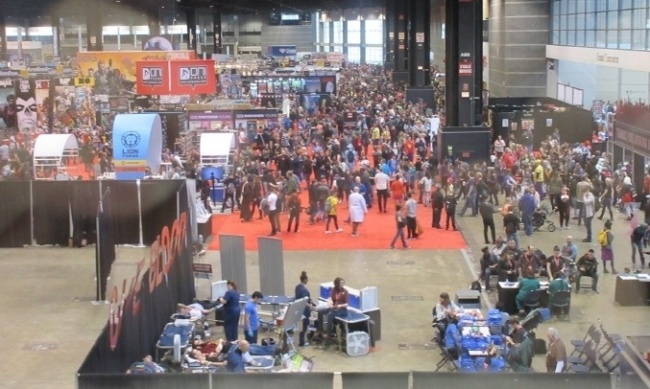
Column by Rob Salkowitz
Posted by Rob Salkowitz on March 4, 2019 @ 11:17 pm CT
MORE COMICS
'Venom' #252 to Feature Backup Story with New Suit, Plus New Story by DeFalco and Frenz
August 4, 2025
Venom #252 will feature a backup story about Venom’s new suit as well as a backup story by Tom DeFalco and Ron Frenz, the creators of the symbiote suit.
Showbiz Round-Up
August 4, 2025
The post-SDCC showbiz news is still spicy a week after the show's conclusion. It's time for another round-up!
MORE COLUMNS
Column by Scott Thorne
August 4, 2025
This week, Scott Thorne addresses some comments on last week's column and the right price for starter products.
Column by Scott Thorne
July 28, 2025
This week, columnist Scott Thorne comments on the Edge of Eternities prerelease and on Magic: The Gathering news from the Hasbro earnings report.



